🎗️Lonny's War Update- October 701, 2023 - September 6, 2025 🎗️
🎗️Day 701 that 48 of our hostages are still in Hamas captivity🎗️
Trump: ‘We’re in very deep negotiations with Hamas,’ some hostages may have ‘recently died’
US President Donald Trump is asked by a reporter in the Oval Office about the status of the mediated hostage negotiations between Israel and Hamas.
“We’re in very deep negotiations with Hamas. We said, ‘let ’em all out, right now, let ’em all out, and much better things will happen'” Trump says, adding that if Hamas doesn’t return the captives from Gaza “it’s going to be a tough situation, it’s going to be nasty… Israel’s choice, but that’s my opinion.”
Referring to parents of the slain hostages, who Trump describes as “young beautiful dead people,” he says they “want them every bit as much — almost more — than as if their son or daughter were alive. But you have many dead people that are coming out as part of the deal.”
He says that of the at least 20 hostages believed to be alive, “there could be some that recently died, is what I’m hearing. I hope that’s wrong.”
Trump reiterates the point he made in a Truth Social post Thursday, in which he called on Hamas to release the remaining living hostages immediately, indicating that the US could accept the terror group’s survival if it does so.
“I was the one who, myself and my people, Steve Witkoff, Jared Kushner was great on this — but they got a lot of people out,” Trump continues, suggesting his son-and-law who was a senior White House adviser during his first term was involved in the negotiations.
“I always said when you get down to the final 10 or 20 you’re not going to get them out unless you’re going to do a lot. And doing a lot means capitulation, that’s no good either. It’s a very tough situation.”
He says “people forget October 7… you have to put that into the equation very strongly.”
Trump also comments on the “big demonstrations” in Israel backing a hostage deal, saying they “put Israel in a tough position” by making it harder to “prosecute a war.”
Families of Gaza captives thank Trump, Witkoff for ‘courage’ and ‘determination’ in hostage talks
The Hostage Families Forum issues a statement thanking US President Trump and his envoy Steve Witkoff “for their unwavering determination, courage, and compassion” in advancing hostage and ceasefire talks.
The statement comes after Trump said the US was in “very deep negotiations with Hamas. Witkoff reportedly met in Paris with Qatari officials on Thursday to discuss efforts to reach a ceasefire and hostage release deal in Gaza.
“We offer special thanks to President Trump, who is making every effort to fulfill his promise to bring them home. We pray this will happen soon,” the statement says.
“Over the past couple of weeks, millions of Israelis have taken to the streets with a clear call: end the war and bring all hostages home—the living for rehabilitation and the deceased for proper burial,”
“President Trump demonstrates that true leadership is measured by bold decisions. We are grateful for his recent executive order that sends a clear message to the world that hostage-taking is fundamentally wrong and will not be tolerated by the US administration,” the statement says, referring to an executive order signed yesterday that would let the US designate nations as state sponsors of wrongful detention, using the threat of associated sanctions to deter Americans from being detained abroad or taken hostage.
“We are confident that President Trump and Ambassador Witkoff will faithfully represent Israel’s interests in these negotiations and bring all parties to a comprehensive agreement,” the statement says, calling on the Israeli government to support Trump’s efforts.
- Mothers of hostages appeal to Netanyahu: 'They are in immediate life danger'
Ahead of the protest set to take place tonight near Prime Minister Benjamin Netanyahu's residence in Jerusalem, Vicky Cohen and Anat Engrest addressed the PM in posts they wrote on X. "Netanyahu, did you sleep last night? Because I've gone through 700 nights without sleep. My Matan is in immediate life danger, that's what I was told yesterday on the phone. You will have no more peace than me," Anat wrote. Vicky added that "My Nimrod is in immediate life danger because of a decision you made. That's why tonight I will come to your doorstep along with tens of thousands of Israeli citizens. It will be loud, just like it's loud for Nimrod from the echoes of explosions sent on your behalf." Mother of hostage Matan Angrest says she was informed his life is in ‘immediate danger’
The mother of hostage Matan Angrest says she received a phone call yesterday informing her that her son’s life was “in immediate danger.”
In a post on X addressed to Prime Minister Benjamin Netanyahu, Anat Angrest does not detail where the information came from.
“Prime Minister @Netanyahu, did you sleep last night, because I spent the 700th night [that the hostages are in captivity] in sleeplessness,” she writes. “My Matan’s life is in immediate danger, that’s what I was informed by telephone last night.”
“So, this evening I will be at the entrance to your house, together with masses of Israeli citizens. It will be noisy, just like it’s noisy for Matan with the sounds of explosions.”
You won’t have any more quiet from me, it’s over,” she writes.
Angrest, 21, an IDF soldier, was kidnapped from a tank by Hamas terrorists on October 7, 2023. He is said to be suffering serious injuries.
**There is nothing more important than getting them home! NOTHING!**
“I’ve never met them,But I miss them. I’ve never met them,but I think of them every second. I’ve never met them,but they are my family. BRING THEM HOME NOW!!!”
Read the Time Magazine article "Our Fight To Save Israel’s Democracy" in the War and Politics section
Red Alerts - Missile, Rocket, Drone (UAV - unmanned aerial vehicles), and Terror Attacks and Death Announcements
*
Wife of hostage Omri Miran: Officials say Israel is headed to ‘murder of the hostages’
Lishay Miran-Lavi, wife of Hamas-held hostage Omri Miran, tells demonstrators at Tel Aviv’s Hostages Square, based on conversations with officials, that Israel is headed for the “murder of hostages.”
She speaks at a Kabbalat Shabbat service being held at the square as part of a day of protests and actions to mark the hostages’ 700th day in captivity.
“In recent days, the families of hostages received calls from official sources,” she says. “I cannot give too much detail at this stage, and I don’t want to hurt other families, but I can say to you knowingly: The Israeli government is laying the groundwork for ‘murder of hostages B.'”
The name appears to be a reference to Gideon’s Chariots B, the name the IDF has given to its offensive to conquer Gaza City.
Relatives of hostages and the IDF’s top brass have warned that the operation could endanger at least 20 hostages thought to be alive. In total, terrorists in Gaza are holding 48 hostages.
“This is not a theory, this is not a worry, this is a real-time alert that’s coming from senior official sources,” Miran-Lavi adds. “I hope that in the coming days the public can gain more exposure to this, and that the matter won’t be kept from it or censored.”
She continues: “I am concerned that the Israeli government is waging a war of attrition against us, against citizens of Israel in general and the families of hostages in particular.”
Year after Rafah tunnel killings, Israel still torn between rescuing hostages and defeating Hamas
The deaths of Hersh Goldberg-Polin, Carmel Gat, Eden Yerushalmi, Alex Lobanov, Almog Sarusi and Ori Danino continue to define Israel’s war, fueling bitter arguments over priorities: securing release of captives or pressing ahead militarily to crush Hamas“When we were down there, in the tunnel where the six hostages were murdered,” an Israeli army officer recalled, “we descended 20 meters below ground and could still clearly hear the tanks rumbling above us. And then, for the first time, you feel in your body the impossible clash of this war: between rescuing the hostages and dismantling Hamas.”It has been a year since Hamas terrorists murdered Hersh Goldberg-Polin, Carmel Gat, Eden Yerushalmi, Alex Lobanov, Almog Sarusi and Ori Danino in a tunnel in Rafah. Their deaths continue to define Israel’s war, fueling bitter arguments over priorities: securing the release of captives or pressing ahead militarily to crush Hamas.A clash at the CabinetOn Aug. 27, 2024, an Israeli delegation was in Qatar for working-level negotiations on a possible hostage deal. That same day, hostage Qaid Farhan was found alone in a tunnel in Rafah’s Tel Sultan neighborhood.Two days later, overnight between Thursday and Friday, the Israeli Cabinet voted to keep troops deployed along the Philadelphi Corridor, a strip on Gaza’s border with Egypt that had become one of the central sticking points in negotiations. That night, the Israeli delegation returned from Qatar amid a major crisis in the talks.Former Defense Minister Yoav Gallant later told ministers: “Since the start of the war, no weapons have crossed under the Philadelphi Corridor, and all tunnels crossing into Egypt are sealed on the Egyptian side. In 42 days of a deal, no tunnels are dug, no weapons smuggled—but 33 hostages return alive.” The following day, Aug. 31, Israeli forces discovered the bodies of six murdered hostages in a tunnel near where Qadi had been rescued. Rumors swept social media before families were officially informed. The next day, the public learned the devastating news, sparking nationwide protests and calls for a strike to demand the hostages’ return. Netanyahu, under harsh criticism, convened a press conference later dubbed the “Philadelphi Speech.” He explained the importance of holding the corridor while openly criticizing Gallant, who had argued that security did not justify staying there at the cost of a deal. Four days later, Netanyahu’s office leaked a classified document—altered despite military censorship—to Germany’s Bild newspaper, seeking to sway public opinion. Military officials say Rafah left not only political scars but also operational lessons. At the time, the Israel Defense Forces believed that advancing slowly would allow both civilians and Hamas fighters to move into the designated humanitarian zone in al-Mawasi, bringing hostages with them. That assumption proved wrong. Tel Sultan, where the six were later found, was Hamas’ last redoubt in Rafah. Commandos reached it only after three months of fighting. By then, Hamas had not moved the hostages to al-Mawasi but had shifted them around inside the neighborhood.
“The decision not to move with the hostages to Mawasi was Sinwar’s greatest mistake,” one senior officer said, referring to Hamas leader Yahya Sinwar. Sinwar was killed six weeks later, near the same tunnel. “That’s why he was killed,” the officer said. The IDF operated with extreme caution. Qadi himself was found unharmed, but there was no advance intelligence on the six hostages’ exact location. Hamas had shifted them repeatedly, making accurate intelligence nearly impossible. Today, officers compare Rafah with the planned assault on Gaza City. “Our assumption back then was wrong,” they said. “You can’t manage these risks without hostages being harmed. Rafah proved it.” Zamir’s warnings Chief of Staff Lt. Gen. Eyal Zamir, who took office after the Rafah murders, has repeatedly warned of the danger to hostages during urban maneuvers. In his first weeks, several senior officers warned that hostages would inevitably be endangered. Retired Brig. Gen. Erez Wiener, then advising politicians and later found to have mishandled classified documents, rejected their warnings. His stance reflected a rift between the military and political leadership that still defines the debate. A member of the negotiating team said the Rafah killings hit negotiators hard: “We knew that except for one, all six were on the release lists for the first stage. They could have been freed. After that, our understanding sharpened: we had to push for a deal.” Negotiations had gained momentum earlier in the summer. U.S. President Joe Biden unveiled what became known as the “Netanyahu framework” in May 2024. On July 2, Hamas for the first time agreed to advance without an Israeli commitment to end the war. Gallant and the negotiating team wanted to seize the opening. Netanyahu delayed nearly three weeks before submitting additional “clarifications” on security in the Philadelphi Corridor and the Netzarim axis, not included in the original plan. These were widely seen as hardening Israel’s stance. At the critical Cabinet session before the Rafah murders, Gallant urged prioritizing the hostages over broader fronts like Lebanon. Netanyahu abruptly called for a vote to remain in Philadelphi, though it was not on the agenda. Gallant warned such a move would doom a deal. Netanyahu countered with three military maps supporting his case. Gallant accused him of hiding a fourth map that said Israel could ensure security without holding the entire corridor. Ministers sided with Netanyahu. The delegation returned from Qatar on Aug. 30 after talks collapsed. The following day, intelligence pointed to hostages murdered in Rafah. Soldiers soon confirmed bodies of women in the tunnel, strengthening suspicions. One of the most haunting moments came when then-IDF spokesperson Brig. Gen. Daniel Hagari released video footage from inside the tunnel at the request of Eden Yerushalmi’s sister, who wanted to see where her loved one was killed. The footage showed bloodstains, personal belongings and the harsh conditions in which the hostages had been held. It was shown to families, then to the Cabinet. Witnesses recalled Netanyahu sitting in silence after the screening. “The prime minister didn’t say a word,” one participant said. That silence soon gave way to controversy. Some of Netanyahu’s supporters accused Hagari of weakening morale by releasing the video. The aftermath is well known. Gallant remained in the minority with security chiefs. In September, Israel shifted the war northward without a hostage deal. Talks stalled until Donald Trump’s election as U.S. president. To this day, Gallant, negotiators and security officials argue that the deal eventually reached in January 2025 was nearly identical to what could have been secured months earlier, except with fewer long-term prisoners released. Netanyahu counters that had Israel agreed then, Sinwar would have survived and military gains in Lebanon would never have materialized. Now, 48 hostages remain in captivity. One year later, the debate remains unchanged. Netanyahu insists on an all-encompassing deal on his terms, while the defense establishment urges him to accept a phased plan that would return 10 hostages alive and 18 bodies within 60 days, with talks continuing for the rest. The arguments are the same, the sides unchanged. A year has passed, but nothing has moved—except that the defense minister now stands with Netanyahu and his government. Link
IDF announces new humanitarian zone in southern Gaza as it steps up offensive in the north
The IDF announces the establishment of a new humanitarian zone in Khan Younis in the southern Gaza Strip as it intensifies efforts to conquer Gaza City.
The zone will include field hospitals, water pipelines, and desalination facilities, along with a steady flow of food, tents, medicine, and medical supplies, coordinated through COGAT with the UN and other international organizations, the military says.
The IDF says these efforts will continue in parallel with its expanding offensive in northern Gaza.
The announcement comes as the military is urging civilians to evacuate southward from Gaza City, where troops are pushing to seize remaining Hamas strongholds and ultimately conquer the city.
It also follows last week’s warning by the UN’s World Food Program that Gaza is “at breaking point,” as well as Israel’s stated plans to scale up humanitarian infrastructure in the south.
Israeli strike destroys Gaza tower; IDF: Was used by Hamas for reconnaissance
Near the targeted high-rise, a subterranean infrastructure had been set up from which Hamas terrorists directed attacks against IDF soldiers
The IDF struck another multi-story building used by Hamas in Gaza City on Saturday afternoon, the army said. Hamas terrorists had installed intelligence-gathering equipment and observation posts in the building to monitor IDF troop movements. The army said Hamas terrorists had also planted explosives nearby, intended to target IDF forces.Video footage released by the IDF showed the building collapsing after the strike. videoNear the targeted high-rise, a subterranean infrastructure had been set up from which Hamas terrorists directed attacks against IDF soldiers. About 90 minutes before the strike, the IDF issued an evacuation warning in Arabic to residents in the area, which Palestinians say is home to hundreds of families. The IDF said measures were taken to reduce civilian casualties, including warnings, precision munitions, aerial surveillance and additional intelligence.“Armed groups in the Gaza Strip systematically violate international law, cruelly exploiting civilian institutions and the population as shields for their operations,” the IDF said. “The IDF will continue to act with strength and determination against these groups in the Gaza Strip.”The IDF had warned Friday that more buildings would be targeted in the coming days after Hamas terrorists were found to have planted explosives nearby. On Friday, Defense Minister Israel Katz released footage of another high-rise strike on the 700th day of the war, captioned “We have begun.” Katz shared the new footage Saturday with the comment “Continuing.”Earlier Saturday, as part of preparations to expand Operation Gideon’s Chariots II, the IDF informed Gaza City residents about the humanitarian zone in Khan Yunis. In an Arabic statement, Colonel Avichay Adraee urged residents to join the thousands who had already left the “Hamas capital.” “Evacuation is possible via Al-Rashid Street, quickly and by vehicle without checks. Take the opportunity to move to the area promptly,” he said.The IDF said the humanitarian zone in Mawasi is prepared to receive hundreds of thousands of residents being evacuated from Gaza City. Link
Gaza and the South

Hezbollah-linked ministers walk out of Lebanese cabinet talks on disarming terror group
Five Shiite ministers affiliated with Hezbollah and its ally Amal, along with one independent Shiite Muslim minister, walk out of a Lebanese cabinet meeting where ministers are due to discuss a plan to disarm the terror group, Lebanese media reports.
The session is being attended by Lebanese Army commanders, who are expected to present a plan to disarm Hezbollah by the end of 2025. Lebanese President Joseph Aoun, facing US pressure, has pushed for the terror group to give up its weapons by the end of the year.
Hezbollah, which emerged significantly weakened from its war last year with Israel, has vehemently rejected laying down its arms. Israel continues to station troops at several points inside Lebanon and has carried out strikes it says are in response to Hezbollah’s violations of the November 2024 ceasefire that ended the war.
The cabinet meeting has continued despite the walkout. However, it remains unclear what the nature of the Lebanese army’s plan will be, and whether it will include the possibility of the army confronting Hezbollah over disarmament.
IDF says 70 wanted Palestinians arrested in West Bank counter-terror raids
The IDF says its forces, together with the Shin Bet, Border Police and West Bank police, arrested 70 wanted Palestinians over the past week in counterterrorism raids across the West Bank.
In the northern West Bank, troops detained 25 suspects, seized 13 rifles, four pistols and a Carlo-style submachine gun, and destroyed several explosive devices, the announcement says. Another pistol was confiscated in the Hebron area.
According to the IDF, a senior Hamas operative preparing an improvised explosive device (IED) attack against Israeli civilians was arrested in the town of Seida in the northern West Bank. In Qabatiya, also in the territory’s north, soldiers from the Paratroopers Brigade’s reconnaissance unit detained several additional suspects and neutralized an IED.
Dozens more Palestinians accused of involvement in terror activity were arrested elsewhere in the West Bank. During large-scale raids in Silwad and Ein Yabrud, northeast of Ramallah, and Hizma, in the northern part of east Jerusalem in Israel, the IDF says its forces seized weapons and “incitement materials.”
The suspects and confiscated weapons were handed over to police and the Shin Bet for further investigation, the announcement said.
- Politics and the War and General News
US, UN talk post-war Gaza plan: Technocratic government, international force, Hamas disarmament
Talks focus on preventing a UN clash over Palestinian state recognition, balancing Hamas disarmament with political participation and ensuring Palestinian unity through a temporary technocratic government and international oversight
A one-year technocratic government, an international stabilization force, disarmament of Hamas — and a rejection of the idea of mass displacement of Palestinians. According to a report Friday in Britain’s Guardian, the United States and the United Nations are holding talks on a plan to rebuild the Gaza Strip, aimed at preventing a diplomatic clash over recognition of a Palestinian state at the upcoming UN General Assembly in New York later this month.According to the report, the plan has been discussed in detail with U.S. Secretary of State Marco Rubio, who warned that what he called “the Israeli threat” to annex the West Bank could be a response if UN member states move to recognize a Palestinian state.Two points are seen as problematic in the plan: Hamas disarmament — a demand made by all European leaders — and whether individuals previously linked to Hamas or terrorism would be allowed to run in Palestinian presidential and parliamentary elections.Palestinian Ambassador to the UK Husam Zomlot gave a speech this week in which he said the Palestinian Authority is committed to holding elections in the West Bank, Gaza and East Jerusalem within a year of a cease-fire. Until then, he said, a technocratic government would serve. On whether Hamas members could participate in future elections, Zomlot said: “That will depend on internal reforms within Hamas. I assure you that the Palestinian people are wise — they will elect whoever best serves them.”Zomlot added: “There must be one law, one government and one law enforcement authority. We will do this, because the central demand now is to preserve the unity of our territory. But ultimately Hamas is part of the political, national and social fabric of the Palestinian people, and it will not disappear overnight. We are not talking about erasure — but about reform, a change of direction and internal dialogue, in order to foil Israel’s plan of destruction.”At the “Two-State Conference” in New York, Arab and Muslim countries, including Qatar, Saudi Arabia and Egypt, for the first time jointly called on Hamas to lay down its arms and relinquish control of Gaza as part of efforts to end the war. The 22 member states of the Arab League, the European Union and 17 other countries backed the resolution, which stated: “Governance, law enforcement and security in all Palestinian territories must be in the hands of the Palestinian Authority alone, with international support.”On the war in Gaza, the countries said: “Hamas must end its rule in Gaza and transfer its weapons to the Palestinian Authority, which enjoys international backing, with the goal of establishing a sovereign Palestinian state.” LinkOur Fight To Save Israel’s Democracy
This summer I was invited to join a discussion at Harvard’s Kennedy School on decaying democracies. Israel’s internal conflict, the unfolding war in Gaza and the hostage situation are all connected to the battle over our country's identity. Are we to stay a modern democracy or to become a theocratic autocracy? That’s what’s at stake.
Walking around campus, I found myself juggling mixed feelings of gloom and determination. The sense of gloom hit when I realized that my own country could soon find itself joining the autocracies that were also represented—Venezuela, China, Russia, Egypt. Researchers from each, plus the United States, were attempting to decipher the challenges presented by opposing either a regime or a decaying democracy.
And yet the thought of the massive number of Israelis coming together to collectively battle this decay—hundreds of thousands as recently as last week—was uplifting, and I felt a rising pride and determination to win the day.
We know that democracies are fragile almost by definition. Around the world, we see democratically elected leaders using democratic institutions to carry out a slow but effective change. By weakening the checks and balances that keep a country democratic they gradually gain unlimited power. Loyalty to the leader rather than to the country becomes the decisive factor in key positions that are designed to be independent and maintain the balance power. And then there is no way back.
We founded Brothers and Sisters in Arms in January 2023 after a newly elected government announced that it planned to pass a set of laws to irrevocably enfeeble almost all Israeli democracy’s checks and balances. Among the 200 laws proposed was one enabling the government to cancel any Supreme Court decision by a simple majority, and another permitting the government to appoint unqualified loyalists to key positions without any review or explanation.
For years we had fundamentally trusted Israeli democracy, taking it for granted. At 50, living with my family in Tel Aviv with a successful career in Israel’s famed tech industry, it had never crossed my mind to play a part in civic society, let alone help found an organization. But I found myself threatened by the prospect of unlimited power in the hands of any government.
Getting together with friends, we understood that something had to be done before it was too late. We started a WhatsApp group, called ourselves Brothers and Sisters in Arms, and planned to walk from Tel Aviv to Jerusalem on a journey for democracy. We were naive, none of us believed the journey would still go on three years later. I have always served my country and stood up to defend it including risking my life. This was what was driving us onto the streets. We love Israel and understand that its security relies on our solidarity. Without democracy, equality and freedom people do not stand up and risk their lives. Our motto was that the army of the people, one for all and all for one, can exist only in a democracy.
Week after week, for nine solid months, Brothers and Sisters in Arms and other protest groups led hundreds of thousands of Israelis into the streets. We raised the alarm in every corner of the country. Tensions escalated as the police response became increasingly aggressive. But we forged ahead and built a nationwide force of supporters. We demonstrated fearlessly, flooded the media and increased public pressure on coalition members, managing to temporarily halt the proposed judicial coup.
And then came October 7. At 6:29 a.m., every Israeli woke up to the sound of alarms blaring. Hamas had brutally penetrated our southern border, embarking on the slaughter of civilians.
Once again Israelis didn’t falter. We came together, setting aside the internal conflict to battle the external threat.
Our government, on the other hand, was paralyzed and in a state of shock. Regular Israelis unhesitatingly stepped up to fill the void. At Brothers and Sisters in Arms we pivoted immediately (literally in minutes) to become a civil-aid organization. We used our infrastructure to engage thousands of volunteers to address a wide range of needs in nationwide logistic operations. We rescued people under fire and supported evacuated families, helping to house and provide for them.
Astonishingly, the brutal attack by Hamas and its aftermath did not dampen the government’s ambition to grab unlimited power. On the contrary. Two years into a war that is not winding down, with our hostages to be returned, this government is totally focused on pushing through its judicial coup, acting continuously against the public interest.
It is refusing to prioritize the return of the hostages—casting aside solidarity and mutual responsibility, perhaps our most important strategic asset. And even though the military is short of manpower, the government refuses to draft ultra-orthodox men, whose religious political parties are key to the Netanyahu coalition. Cynically and immorally, the government is creating separate sectors of society. One risks its lives life defending the country and the other does not. Hundreds of thousands of Israelis have returned to the streets demanding a brave leadership.
Moreover, Netanyahu and his government refuse to take any responsibility for October 7 or to appoint a state commission of inquiry to investigate how we got there—even though 80 percent of Israelis, according to multiple surveys, believe that inquiry is imperative.
If Israel is to survive as a vibrant, democratic Jewish state in accordance with the Zionist vision of our founding fathers and our declaration of independence—a safe home for the Jews, a thriving democracy based on equality and open to all religions and beliefs—the Israeli public must step up once more and actively participate in the democratic process. This is both the privilege of the demos in the modern world and its obligation.
Dealing with internal conflicts of identity while being threatened by external enemies is not unique to Israel. But Israel’s life-threatening circumstances show that the social robustness required to overcome them require most citizens to be committed and engaged. In Israel our “groupishness” is our superpower. That is the Zionism on which I was raised. It is the Israel we want to return to. The researchers in Harvard, like many people around the world are looking at the Israel’s battle for itself. The outcome depends on us. We are the democratic defense force. Link
Palestinian NGOs vow to continue cooperation with ICC despite US sanctions
Three Palestinian human rights groups that had US sanctions imposed on them for asking the International Criminal Court to investigate Israel over allegations of genocide in Gaza say they plan to continue their cooperation with the war crimes tribunal.
The three groups — the Gaza-based Palestinian Center for Human Rights and Al Mezan Center for Human Rights, and the Ramallah-based Al-Haq — were listed yesterday under what the US Treasury Department said were International Criminal Court-related designations.
The step marked a significant intensification of the Trump administration’s efforts to undermine the ICC case against Israel, expanding Washington’s sanction campaign from court officials to outside groups that are backing the case against Israel.
Palestinian lawyer Raji Sourani, who runs the Palestinian Centre for Human Rights, calls the sanctions “shameful” and says he will not be deterred.
“This is our reaction: business as usual, we are just in the court doing what we have to do,” Sourani tells reporters outside the ICC after meeting its deputy prosecutor.
The three human rights organizations asked the ICC in November 2023 to investigate Israeli air strikes on densely populated civilian areas of Gaza, the siege of the territory, and the displacement of the population. A year later, the ICC issued arrest warrants for Prime Minister Benjamin Netanyahu and his former defense chief, Yoav Gallant, as well as leaders of the Hamas terror group, for alleged war crimes and crimes against humanity.
Israel has also acted against al-Haq in the past, designating it a terrorist organization over its alleged links to the Popular Front for the Liberation of Palestine (PFLP), a terror group.
US President Donald Trump’s administration has imposed sanctions on ICC judges as well as its chief prosecutor over the Israeli arrest warrants and a past decision to open a case into alleged war crimes by US troops in Afghanistan.
The ICC, which was established in 2002, has jurisdiction over war crimes, crimes against humanity, and genocide in its 125 member countries. Some nations, including the US, China, Russia and Israel, do not recognize its authority.
Egypt vows to block displacement of Gazans, says it would mean ‘end of Palestinian cause,’ again accuses Israel of genocide
Egypt says it will not tolerate mass displacement of Palestinians and repeats its charge that Israel is committing genocide, continuing to ratchet up its criticism of Israel’s war against Hamas in Gaza as thousands of residents of Gaza City defied Israeli orders to leave.
“Displacement is not an option and it is a red line for Egypt and we will not allow it to happen,” Egyptian Foreign Minister Badr Abdelatty tells reporters in Nicosia.
“Displacement means liquidation and the end of the Palestinian cause and there is no legal or moral or ethical ground to evict people from their homeland,” he says.
He continues, “What is happening on the ground is far beyond the imagination. There is a genocide in motion there, mass killing of civilians, artificial starvation created by the Israelis.”
Israel adamantly rejects the accusations that it is causing starvation in Gaza and committing a genocide there, saying it makes efforts to facilitate humanitarian assistance and to avoid civilian casualties. It blames Hamas for fighting among civilian populations and accuses it of stealing aid.
Netanyahu accuses Egypt of imprisoning Gazans ‘against their will’ in growing war of words
In a growing war of words between Israel and Egypt, Prime Minister Benjamin Netanyahu accuses Cairo of “imprisoning against their will residents in Gaza who want to leave a war zone.”
The statement comes in the wake of Egyptian anger over Netanyahu saying in an interview with the Abu Ali Express channel that he would allow Gazans to leave through the Rafah Crossing, but “they would be blocked by Egypt.”
In response, Egypt’s foreign ministry expressed its “utmost condemnation” of Netanyahu’s statement, and called it “part of his continuous attempts to prolong the period of escalation in the region and entrench instability to avoid confronting the consequences of Israeli violations in Gaza, both internally and externally.”
“Displacement is not an option and it is a red line for Egypt and we will not allow it to happen,” Egyptian Foreign Minister Badr Abdelatty told reporters earlier on Friday in Nicosia.
“Displacement means liquidation and the end of the Palestinian cause and there is no legal or moral or ethical ground to evict people from their homeland,” he said. He also repeated Egypt’s accusation that Israel is committing genocide, a charge Israel adamantly rejects.
Egypt is bolstering its forces along its shared border with Gaza ahead of the IDF’s offensive to capture Gaza City, due to concerns that the mass evacuation of Palestinians from the north of the Gaza Strip could lead to an attempt to flee into the Sinai.
Egypt closed its border with Gaza after Israel captured the Rafah crossing, which it controls. Following the outbreak of war in Gaza on October 7, 2023, Egypt constructed a concrete border wall that reaches six meters into the ground and is topped with barbed wire. It has also built berms and enhanced surveillance at border posts, security sources said. link It would appear that Netanyahu is on a mission to alienate every single country that has supported or been an ally to Israel and he is succeeding in this mission more than any mission before him, including the war and the hostages. The only country that he seems to care about is the US and its president, his BFF. After years or proclaiming that he is the only possible leader in Israel who is welcomed on the Red Carpet throughout the world, and feeling like a king in all of these receptions, he is now one of the world's most hated leaders. Many of the countries that he claimed the best friendships with the leaders will now arrest him as they are signatories to the ICC which has issued an arrest warrant for him for war crimes.
He has acted against the best interests of Israel and its population for a long time, but it has never been felt as must as the last two years, which have literally been a fight for his political survival after October 7 for which he has shirked all responsibility. His actions prior to October 7 were to glorify himself and make sure he remains in power forever. That has been his motivating force for years. First himself and then what is good for the country. He always made a point to distort his self interested actions to make it appear, at least to his voting base, that all of his actions were in the interest of the country. Lies, of course. Since October 7, the ground shifted under him and he saw that his house of cards was tumbling down, something he could not abide, so every single act and statement since then has been to politically survive the worst attack in the history of Israel under his almost 2 decade watch and responsibility, and to preserve his glorified legacy. This is a man who dreamed that towns or cities, universities, hospitals and roads would be named after him. Instead, he will go down in the history books as the worst and most dangerous prime minister in Israel's history and nothing will be named after him. No one should ever forget that one of his most important meetings on October 8 was not with the security chiefs, not with the cabinet, not with the president of the United States; it was with his political advisors and PR people to make a plan for him to survive October 7 and remain prime minister, when everyone else knew that he needed to take full responsibility and resign.
So, we had a new situation for Netanyahu, whereby he was always seeking to create historical events for which he could take full credit, including normalization agreements with the countries in the Abraham Accords and the Shining Jewel of Saudi Arabia, which was a breath away before October 7, to do everything he could to survive politically. This also meant to stave off a State Commission of Inquiry which he knows will find him most responsible and to blame for events leading up to October 7 and for his total mismanagement of the war and the hostage crisis. To do this, he has resorted to all types of maneuvers including the attempt to have a law passed in the Knesset that would legally prevent a state commission of inquiry. That failed but his attempts to prevent have not. His standing response has been that there cannot be a commission of inquiry while the war is going on. So, he makes sure that the war goes on.
In addition, he knows that the moment the war ends, there will be a deluge of calls for early elections including from within his coalition, especially if he is forced into a hostage deal that also calls for the end of the war. So, what does he do? He makes sure to prevent any hostage deal that would cause his coalition to fall apart and keeps the war going.
And what do all his efforts to keep the war going create? They create problems with just about every country in the world due to the war crimes being perpetrated by the army under orders by Netanyahu. We have seen the domino effect of his actions and statements which have alienated almost every previously supporting country and ally, except for the US and a few select countries like Hungary which have autocratic leaders who applaud his actions because they are the same actions that they would commit in his place. He has succeeded in turning Israel from the envied Start-up nation with a powerful economy and military to a pariah nation that has created the world's greatest humanitarian crisis and killed tens of thousands of non combatants, mostly women, children, elderly and infirm, and keeps killing more on a daily basis. We have become loathed around the world, even in the US, with Israelis and Jews attacked everywhere. Netanyahu, who proclaimed himself on so many occasions as the savior of the Jewish People (not only the State of Israel) has been the spark that ignited the exponential growth of antisemitism in the world, the worst situation since the holocaust.
Netanyahu truly has succeeded in this mission of alienation and hatred towards Israel more than anything he has ever done and all the credit is his. Thank you, Netanyahu for your gifts that keep on coming.Egyptian FM says casting displacement of Gazans as voluntary is ‘nonsense’
CAIRO, Egypt — Egyptian Foreign Minister Badr Abdelatty, whose country is a key mediator in efforts to end the Gaza war, says that describing the displacement of Palestinians as voluntary was “nonsense.”
Israel earlier called on Gaza City residents to leave for the south, as its forces advance deeper into the enclave’s largest urban area.
“If there is a manmade famine (in Gaza), it is to push residents out of their land. It is nonsense to say that this is voluntary displacement,” Abdelatty says in a joint press conference with the commissioner-general of the UN agency for Palestinian refugees, Philippe Lazzarini.
Prime Minister Benjamin Netanyahu has supported the idea that Palestinians in Gaza should be allowed to voluntarily leave and suggested that other countries should accept them.
Netanyahu’s office said on Friday that he had spoken about the basic human right of every individual to choose where they live, particularly during times of war.
The Egyptian minister also says he spoke with US special envoy Steve Witkoff yesterday and discussed intensifying efforts to implement the latest ceasefire proposal.
He blames Israel for what he described as its intransigence over the delay in reaching a ceasefire.
Personal Stories
Acronyms and Glossary
ICC - International Criminal Court in the Hague
IJC - International Court of Justice in the Hague
MDA - Magen David Adom - Israel Ambulance Corp
PA - Palestinian Authority - President Mahmud Abbas, aka Abu Mazen
PMO- Prime Minister's Office
UAV - Unmanned Aerial vehicle, Drone. Could be used for surveillance and reconnaissance, or be weaponized with missiles or contain explosives for 'suicide' explosion mission
Join my Whatsapp update group https://chat.whatsapp.com/IQ3OtwE6ydxBeBAxWNziB0
Twitter - @LonnyB58 Bluesky - @lonny-b.bsky.social
My blogs in The Times of Israel my blogs
Substack - https://lonnyb.substack.com/
Twitter - @LonnyB58
My blogs in The Times of Israel my blogs
Substack - https://lonnyb.substack.com/

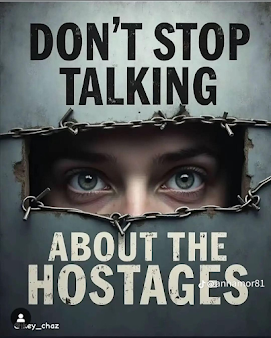

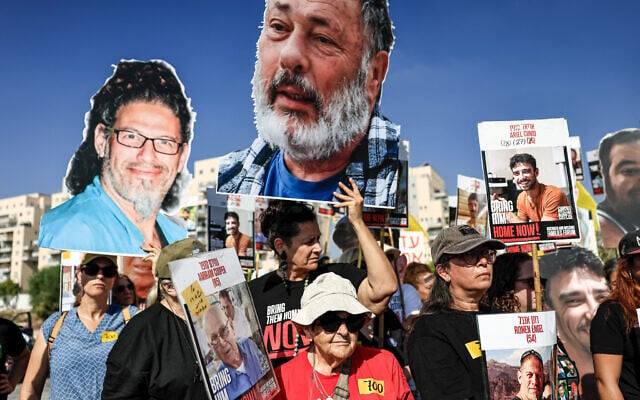
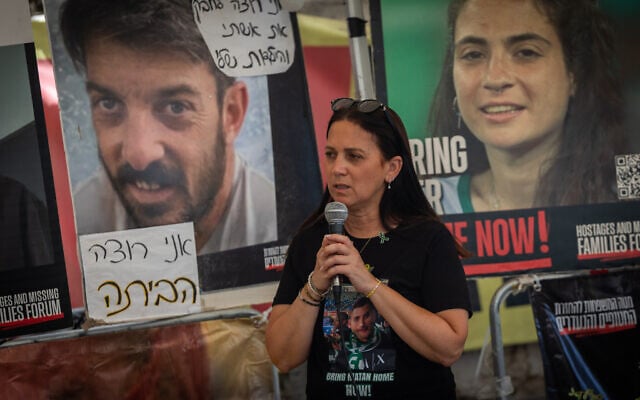
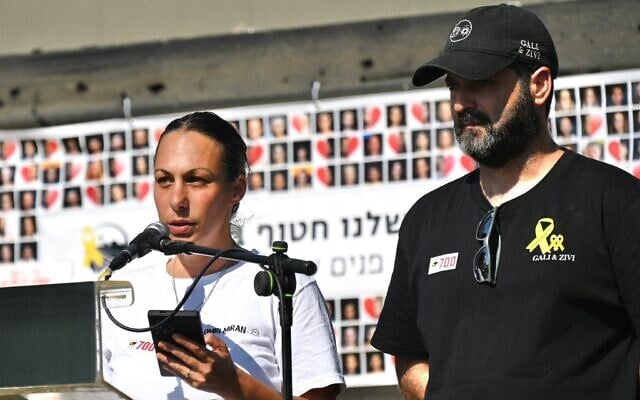



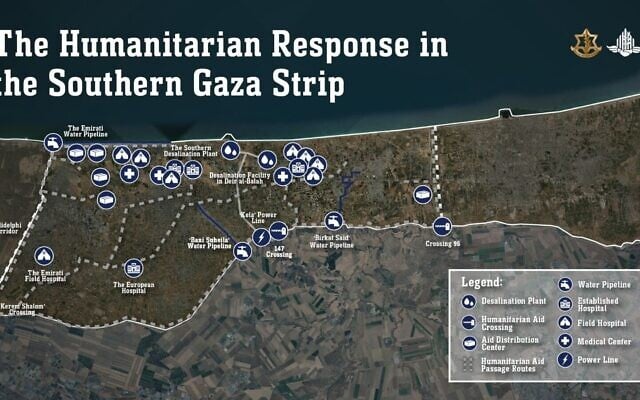
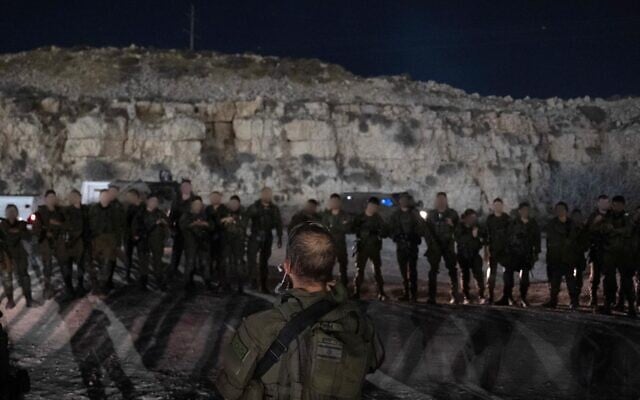
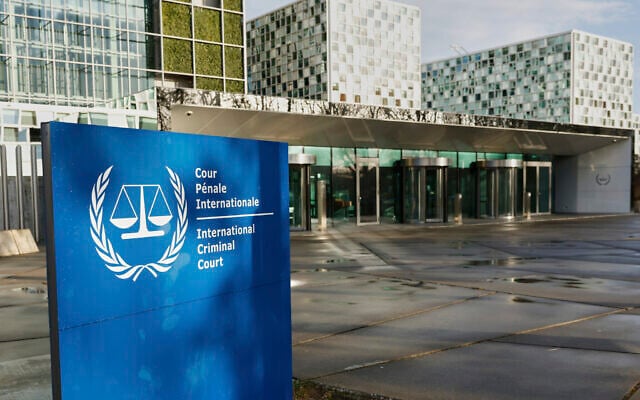
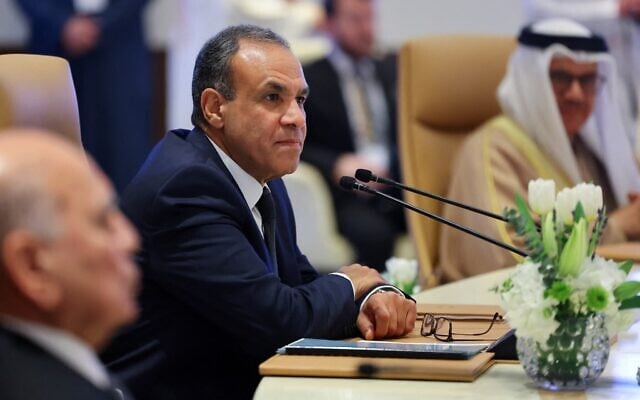
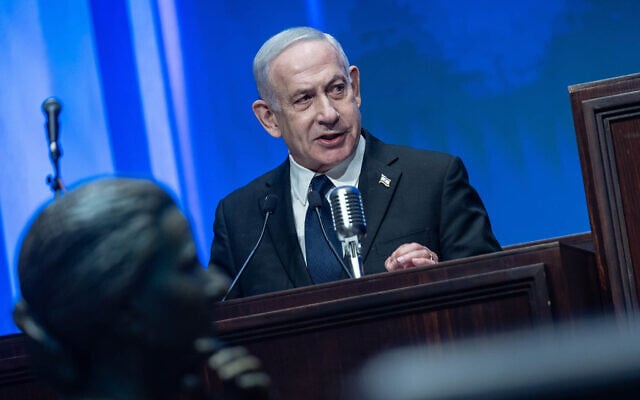
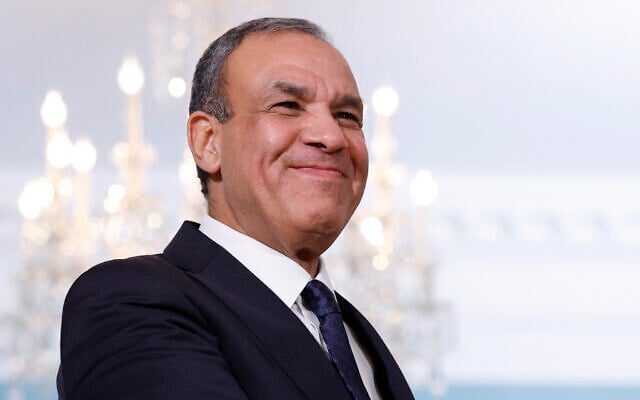






Comments
Post a Comment